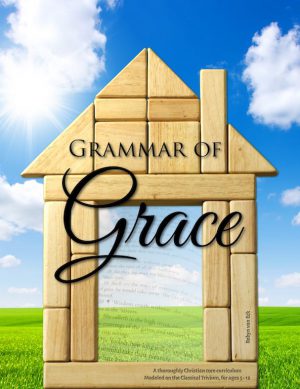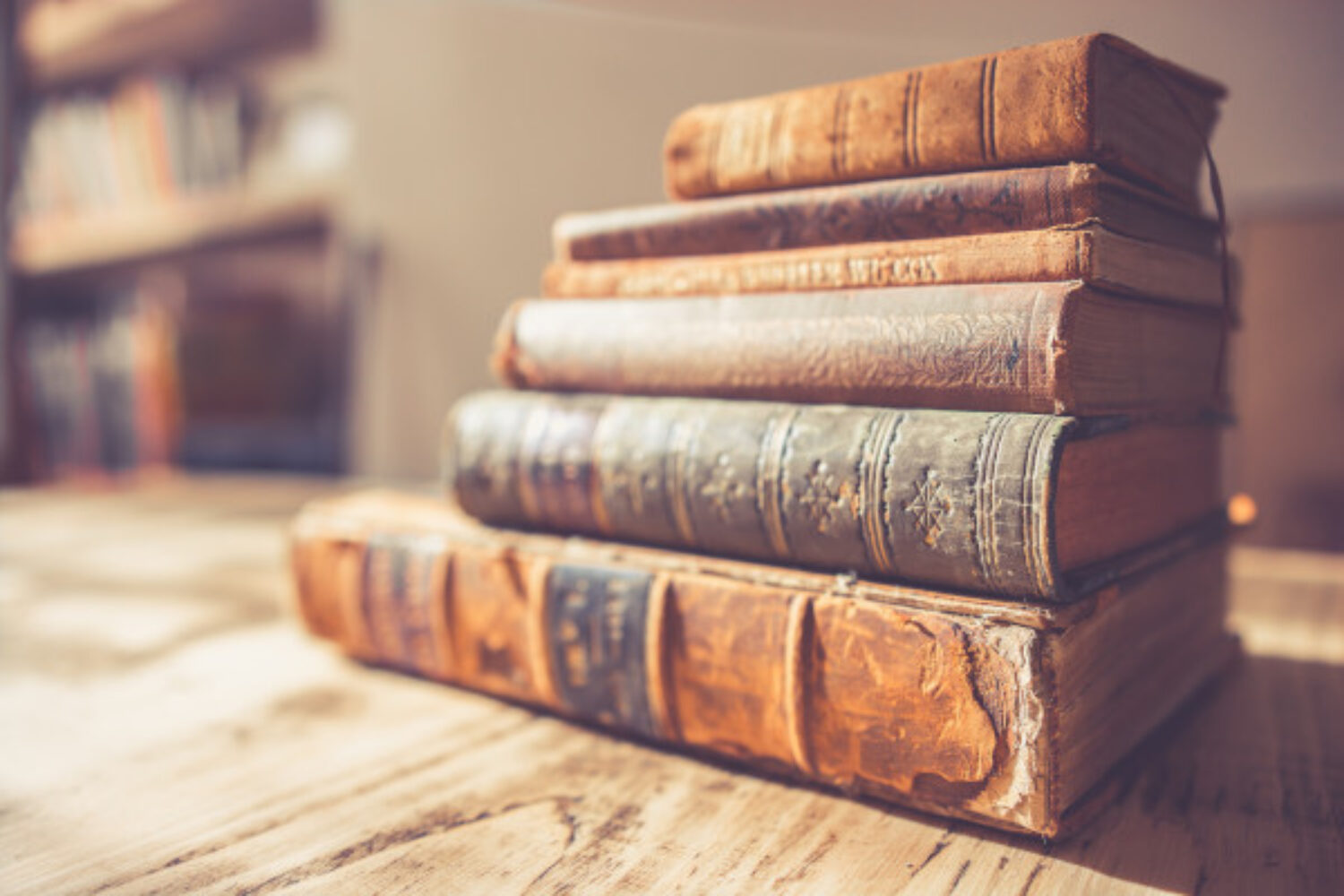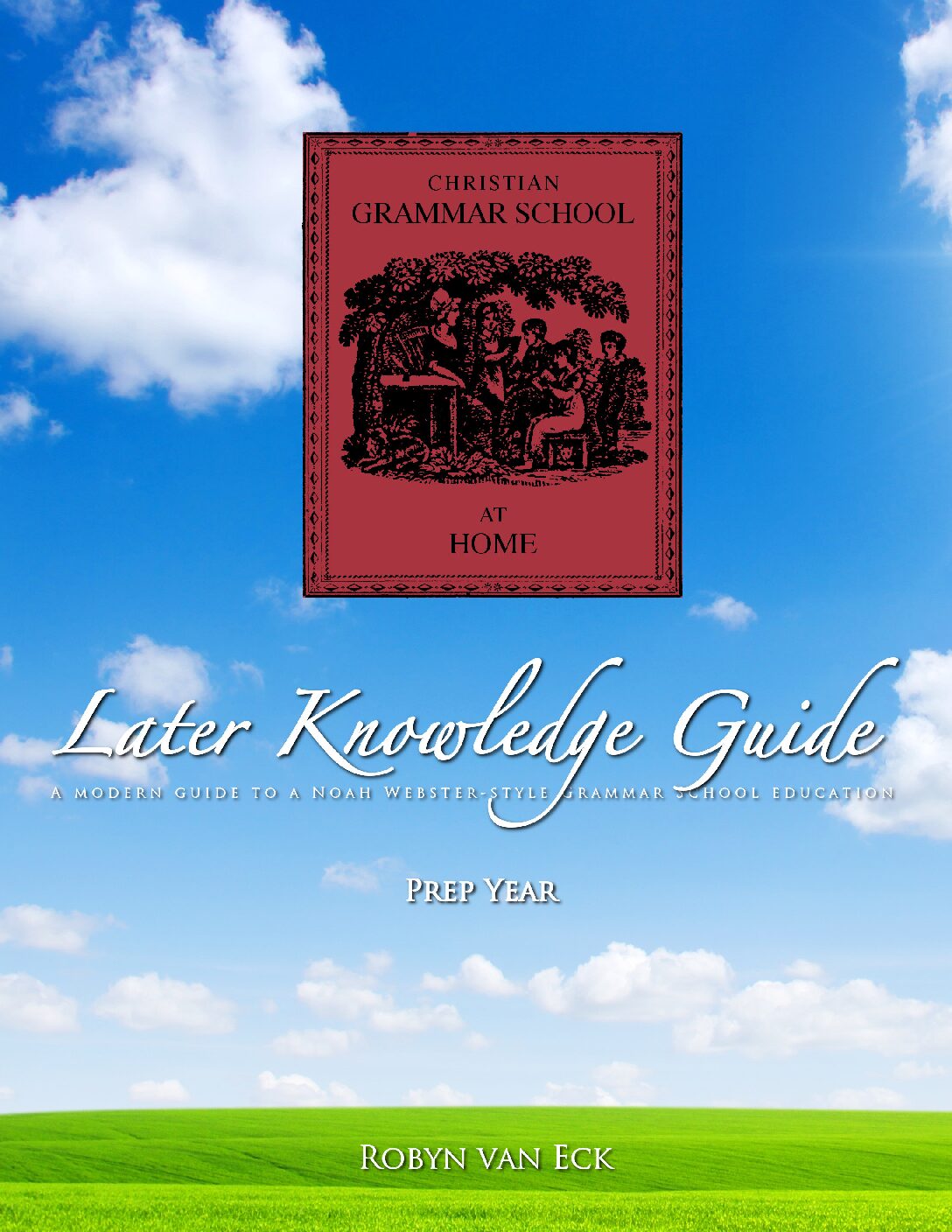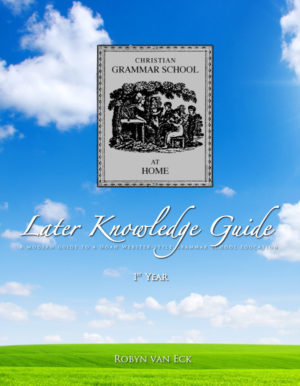Photo by Chris Lawton on Unsplash
I’m pretty sure one of my children has a little dyslexia.
We’re having our monthly Trivium Tuesday meeting—Wisdom’s Way moms in our area come together to read good books about historically Christian education, and to discuss.
And one of our newest moms brings up a topic she’s mentioned before: “I’m pretty sure one of my children has a little dyslexia.”
To me, this is the third rail of education.
Do you know what a “third rail” topic is? In cities with subways, the subway train needs power to run, and they don’t run on gas or diesel or anything else like that; they run on electricity, just like a lamp in your house. But a subway train takes a staggering amount of electricity to run. So it’s got to be “plugged in” all of the time; it can’t run on battery power; there’s no battery big enough! And the “electrical outlet” has to pump out a lot of power. So the subway train runs on train tracks—two rails, just like you see trains running on all over the world. But in the middle, there’s a third rail, which supplies electricity to the train. This third rail is basically a live electrical wire—it’s carrying a lot of electricity, and it’s open and uncovered. People who use subways know: If you touch the third rail, you’ll get electrocuted. Don’t touch the third rail.
So it has passed into an expression that in conversation, there are some topics you’d better not touch, or you’re going to get into big trouble; and we say that that topic like a third rail. Don’t touch it.
Dogma
We all know that learning disabilities are real, and that they are not the child’s fault, and not the parents’ fault, and no one caused it, and some children are just born that way, and we have lots of creative methods to help children overcome them.
I’m old enough to remember when that “truth” was new information, and it was highly promoted on the news and in debates (in the 80s). Theo Huxtable, the handsome, likeable only son on The Cosby Show was diagnosed with dyslexia, and the writers of The Cosby Show wrote a tale of an educated family coming to grips with an embarrassing, yet solvable dilemma, if only they would accept that dyslexia was a reality for some children, even their own beloved son. No, he couldn’t learn to read, unless they slapped that label on him and entered him into the world of special needs education.
And today, the entire educational establishment, including the homeschooling world, teaches these ideas as dogma. Because it’s true, and everybody knows it. You’ll see it asserted that 1 in 59 children have one or more learning disabilities, and we know it from our own lives. Learning disabilities are common.
History
Except that, 100 years ago, there were no such things as learning disabilities.
That’s because all of those poor children were suffering, undiagnosed, without help, back in those old times.
Except that, 100 years ago in America, everyone knew how to read.
Three-time New York Teacher of the Year award winner (who then quit teaching in the public schools in disgust), John Taylor Gatto, writes in The Underground History of American Education:
Looking back, abundant data exists from states like Connecticut and Massachusetts to show that by 1840, the incidence of complex literacy in the United States was between 93 and 100 percent wherever such a thing mattered. According to the Connecticut census of 1840, only one citizen out of every 579 was illiterate.
And you probably don’t want to know, not really, what people in those days considered literate; it’s too embarassing. Popular novels of the period give a clue: Last of the Mohicans, published in 1826, sold so well that a contemporary equivalent would have to move 10 million copies to match it. If you pick up an uncut version, you find yourself in a dense thicket of philosophy, history, culture, manners, politics, geography, analysis of humans motives and actions, all conveyed in data-rich periodic sentences so formidable only a determined and well-educated reader can handle it nowadays. Yet in 1818, we were a small-farm nation without colleges or universities to speak of.
What about 100 years ago?
Bruce Shortt, veteran of a public school education and a family line of proud public school educators, Christian, and a Harvard graduate, writes in The Harsh Truth About Public Schools:
At the beginning of the 20th century, pupils in Kansas who wanted to graduate from the 8th grade had to pass a test requiring them to be able to spell words such “elucidation” and “animosity”, define words such as “zenith” and “panegyric”, diagram sentences, and solve problems in arithmetic such as finding the interest earned on a $900 note, at 8%, after two years, two months, and six days. They were also expected to be able to answer equally challenging questions in geography and history.
Gatto goes on:
By 1812, Pierre DuPont [founder of the DuPont company] was claiming that barely four in a thousand Americans were unable to read well and that the young had skill in argumentation thanks to daily debates at the common breakfast table.
That would be 996 out of every 1000 Americans who could read well. And the standards that people considered reading “well” in those days leave today’s college graduates shaking their heads in wonder.
I say again, before modern education, 996 out of every 1000 Americans did not have dyslexia, or any other learning disability.
The reason why there was no such thing as dyslexia in those days… is because there truly was no such thing as dyslexia in those days.
But My Child Does Have a Learning Disability
Yes, it is true, there are lots of learning disabilities today.
So we come back to the question that has troubled parents for the past 100 years: Why?
Rudolph Flesch would famously echo the question many parents were asking in the title of his 1955 book, Why Johnny Can’t Read. It became an instant bestseller, and stayed on the bestseller list for 37 weeks.
You see, the parents of the 1940s and 1950s expected every single child to learn to read fluently and well. And many of their children could not read. This was shocking to these parents. Today, we consider it normal, but our great grandparents had grown up in a world where this was unheard of and absolutely unacceptable.
And this is why we have disorders called dyslexia, and dysgraphia, dyscalculia, ADHD, and many others, to this day.
What’s the connection, you ask?
To answer that question, we have to start back at the root of this whole American thing.
The Protestant Reformation was, truly, a reform movement. The Christian church had become thoroughly corrupted with anti-biblical teaching and practice, and the reason things got so bad is because only a sliver of Christians were permitted to read the Bible—only those in power—and those ones didn’t want to read the Bible!
The gift of God that brought about the Protestant Reformation, and the saving of thousands of souls at that time, and millions of souls since then, was given through the means of the reading.
(This is an important Christian teaching that I don’t hear explained a whole lot these days: God works on this earth, and everything is under His sovereign control; but most of the time, He uses earthly means to do His works on this earth. For example, Jesus ascended to heaven, but He is still doing wonderful works on this earth through His body, ordinary Christians filled with His Holy Spirit—He uses the means of His people to do His works. Christians love each other, share the Gospel and lead the lost to salvation, teach His Word, help the poor, etc. So likewise, in the case of the Reformation, the earthly means that we would speak of would be reading—the reading of the Bible.)
The settlement of America was done by children of the Reformation, many of whom came to America for the very purpose of establishing a land where the Bible was believed and obeyed. The first of these people were called the Pilgrims, and they were followed by many of their brethren, the Puritans.
These children of the Reformation valued teaching their children to love and serve God above everything else.
Therefore, they held the key earthly means of the Reformation—literacy—in the very highest esteem.
This was the key to the Reformation: The Word of God was open for all to read, not kept away from the people by priests and popes. Only one thing was needed: the ability to read.
The Reformers and their offspring so highly prized the Bible as the living Word of God, and thus the Way their children might be saved, that they did something rarely—perhaps never before—seen in world history: They universally taught their children to read. Even their daughters. All of their children.
Hence, by the time the American colonists were being oppressed by Mad King George III and his Parliament, and they finally declared their independence from England, the young nation was a nation of nearly universal literacy.
But how does that explain why we have learning disabilities today?
The historical backdrop that our grandparents and great grandparents came from is the first half of the equation. Here is the second half:
Literacy is not a neutral topic.
Continued in Part 2…
Thanks for dropping by; please keep us in prayer!
Recommended Resources
-

Grammar of Grace
$89.00 – $148.00 Select options This product has multiple variants. The options may be chosen on the product page




C Joyce Lukrofka
That is a very interesting article. Thanks for sharing it. I am on your mailing list because I signed up for it when my great grandson was being "home schooled by me and his dad. Now he goes to a charter school and is in the 6th grade. The teacher told us that he is at the level of 5th grade in reading. That surprised me a lot because he loves to read and does a lot of it. I guess it "boiled down" to the fact that he was reading mostly books with pictures in them. Now we have him checking out books from the library with no pictures!! Learned fact too late to correct it during our homeschooling two years. (3rd and 4th grades) I am deleting all of "homeschooling" e-mails that we have been receiving, except yours. I like to keep up with what you are doing and how you are informing parents. Thank you for your devotion to children. May God continue to bless your work and your family. C Joyce Lukrofka Bastrop, TX.